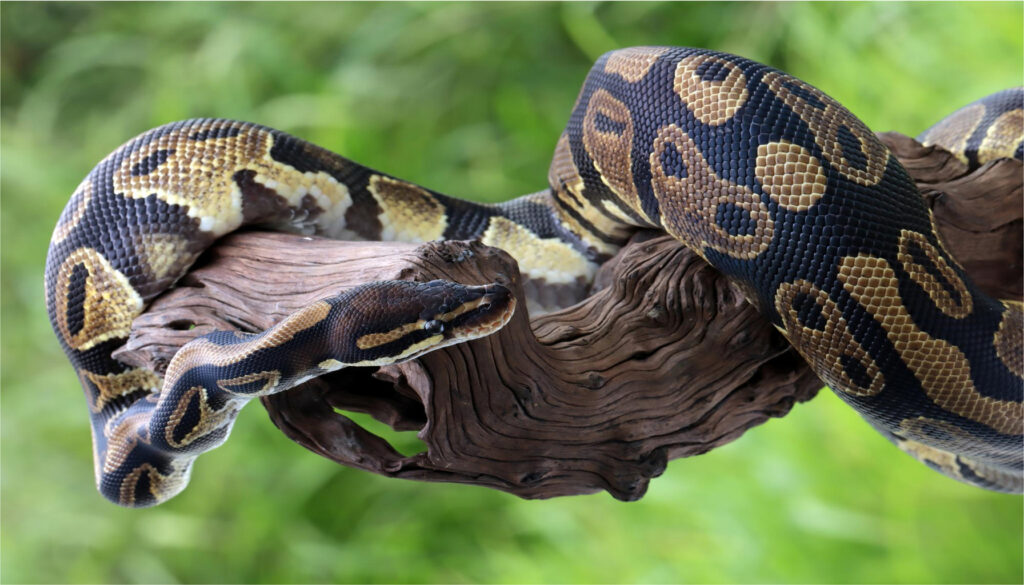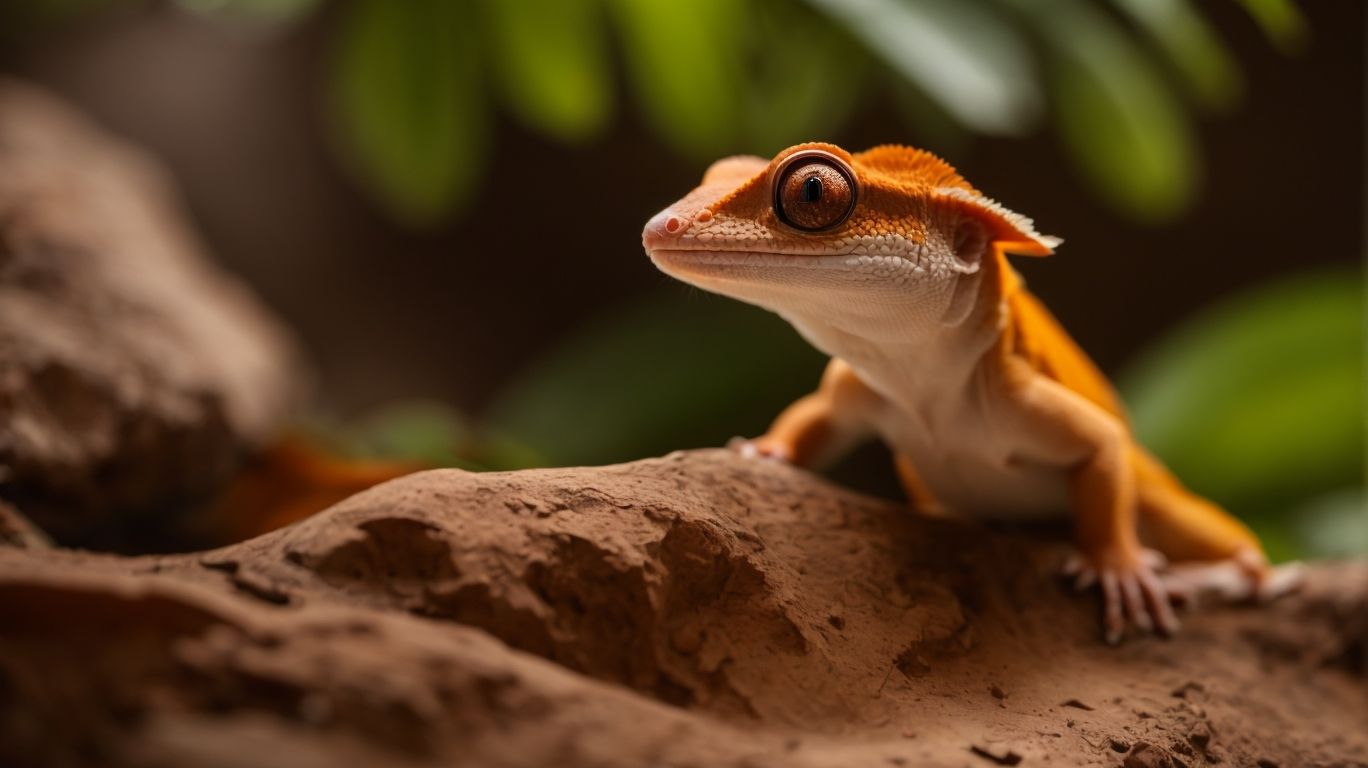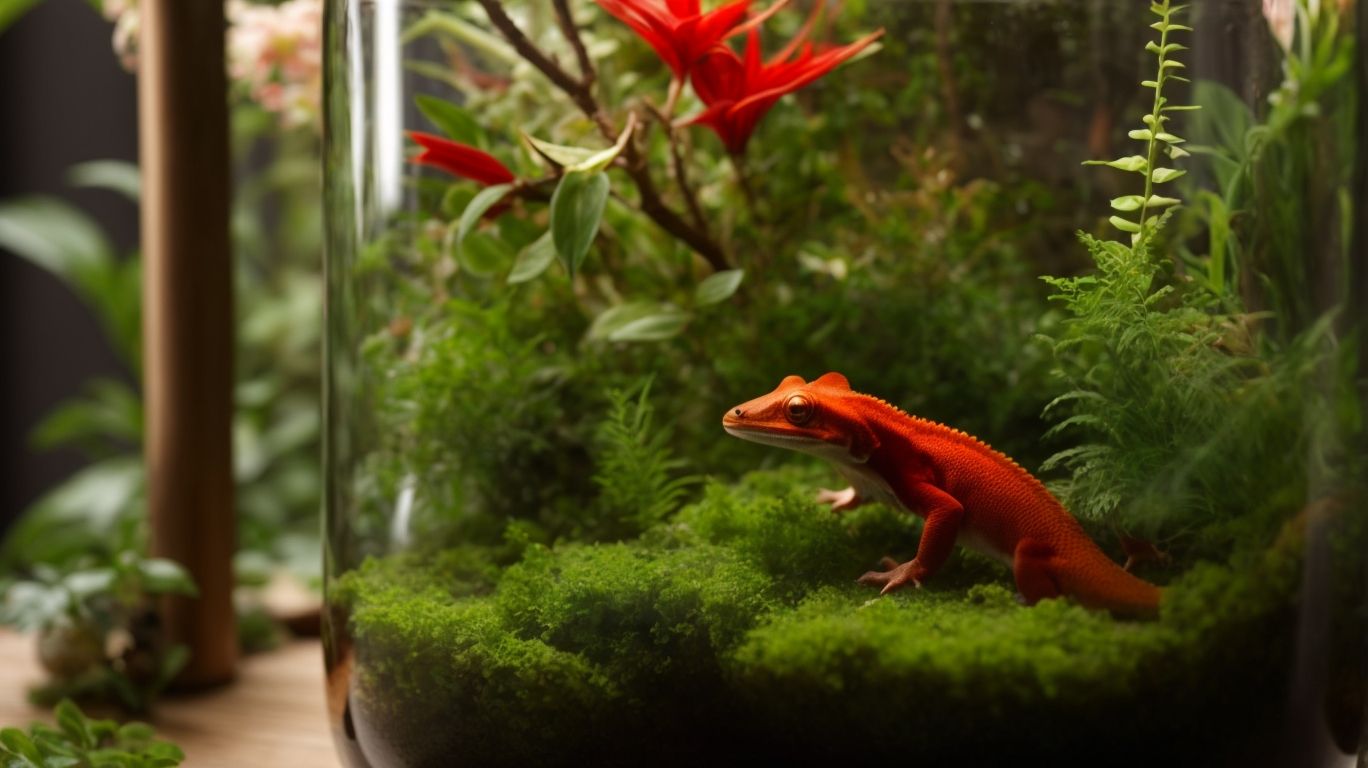
Why Black Ball Pythons Are an Ideal Pet
Table of Contents
The Fascinating Black Ball Python Discovery, History, and Morphs
The black ball python, with scientific name of Python regius, is a captivating and fascinating snake species that has captured the hearts of snake enthusiasts around the world. With their stunning black coloration and unique patterns, these snakes are a sight to behold. Their elegance and beauty make them an intriguing pet choice for reptile lovers.
These snakes has a rich history intertwined with its discovery in the wild and subsequent cultivation in captivity. Native to the grasslands and savannas of West and Central Africa, particularly in countries like Ghana and Togo, these pythons were initially encountered in their natural habitat. In terms of their history in captivity, black ball pythons became popular among reptile enthusiasts in the late 20th century.
Breeders, recognizing the unique aesthetic qualities of these snakes, actively engaged in selective breeding to enhance and stabilize their distinctive black coloration. Over time, this careful cultivation has resulted in the availability of various morphs and color variations within the black ball python species, contributing to their status as highly sought-after and cherished reptile companions in the world of herpetoculture.
The world of black ball pythons is not only mesmerizing due to their unique appearance and docile nature but also because of their fascinating morphs. Morphs refer to variations in color and pattern that occur naturally or through selective breeding. When it comes to black ball pythons, there is an incredible range of morphs that have been discovered and developed over the years.
From the classic black ball python to the stunning black pastel morph, there is a morph to suit every taste and preference. Some morphs exhibit patterns that resemble intricate lacing or striking geometric shapes, while others display vibrant colors that range from deep purples to bright oranges. Each morph is a testament to the diversity and beauty that exists within the black ball python species.
Temperament of Black Ball Python
The temperament of the black ball python is one of the many reasons why they make such fantastic pets. These snakes have a calm and docile nature, which makes them a great choice for both experienced and first-time snake owners.
Black ball pythons are known for their easygoing and relaxed disposition. They rarely display aggressive behavior and are generally quite tolerant of handling. This makes them easy to interact with and a joy to have as a pet.
Their calm nature also makes them less prone to stress, which is beneficial for both the snake and the owner. Black ball pythons are less likely to become stressed when being handled or exposed to new environments, making them more adaptable and easy to care for.
Another aspect of their temperament that makes them a popular choice is their slow and deliberate movements. Unlike some other snake species, black ball pythons have a gentle and measured way of gliding across the ground. This graceful movement adds to their captivating nature and makes them a pleasure to watch.
Black Ball Python’s Diet and Nutrition
The diet and nutrition of a black ball python is an essential aspect of their care and well-being. As a responsible pet owner, it’s crucial to understand their dietary requirements and provide them with a balanced and appropriate diet.
In the wild, black ball pythons primarily feed on small mammals such as mice and rats. As captive pets, their diet should consist of appropriately sized frozen-thawed rodents. It’s essential to ensure that the size of the prey matches the size of the snake, as offering prey that is too large can lead to regurgitation or other health issues. Feeding them in a separate container is also recommended to avoid substrate ingestion.
When it comes to feeding frequency, adult black ball pythons typically eat every 1-2 weeks, while juveniles may require more frequent feedings. Supplementation with calcium and other essential vitamins may be necessary, especially for growing snakes or those with known nutritional deficiencies. Consult with a reptile veterinarian to determine the best supplementation plan for your black ball python.
Proper hydration is also vital for these snakes. Ensure they have access to clean, fresh water at all times. Some individuals may also benefit from occasional misting or soaking to aid in shedding.
While feeding black ball pythons, common challenges may arise, and it’s crucial for pet owners to be aware of potential issues. One common concern is the occasional refusal of food, which can be normal during shedding, breeding seasons, or periods of reduced activity. Addressing feeding challenges may require adjustments to the feeding schedule, experimenting with different prey types, or seeking advice from a reptile veterinarian. Monitoring the snake’s behavior and body condition is essential to identify and address any feeding difficulties promptly.
Black Ball Pythons’ Care and Husbandry
Caring for black ball pythons is crucial to ensure their health and well-being. These magnificent snakes require specific husbandry practices to thrive in captivity. Here are some essential care tips for black ball python owners.
Firstly, providing a suitable enclosure is essential. Black ball pythons need an enclosure that mimics their natural habitat. A spacious tank with secure lid, appropriate temperature gradients, and a hiding spot is essential for their comfort. Substrate options such as aspen shavings or reptile carpet work well.
Maintaining the right temperature and humidity levels is crucial. Black ball pythons require a warm side of the enclosure, around 88-92°F, and a cool side, around 78-82°F. Using a thermostat and heat lamps or heating pads will help regulate the temperature. Keeping humidity levels between 50-60% is important to prevent respiratory issues.
Black ball pythons typically do not require UVB lighting, as they are primarily nocturnal. Instead, maintaining a natural day-night cycle with ambient room light suffices. A low-wattage basking light can be used to establish this cycle, but it’s crucial to monitor the snake’s behavior and ensure the lighting doesn’t disturb their natural habits. Adjustments should be made to provide a comfortable, low-light environment, as these snakes generally prefer subdued lighting for their well-being.
Regular health check-ups are crucial for their well-being. Find a reptile veterinarian experienced in treating snakes to ensure their health is monitored. Regular check-ups also allow for any potential health issues to be addressed promptly.
Maintaining cleanliness is vital for their overall health. Regularly cleaning the enclosure, removing waste, and providing fresh water will prevent the growth of bacteria or other harmful organisms.
Identifying and Addressing Potential Concerns of Black Ball Python
Owning a black ball python can be a rewarding experience, but like any pet, there are potential concerns to be aware of. It’s important to educate yourself about these issues so that you can provide the best care for your snake.
One common concern is the size that black ball pythons can grow to. While they are not the largest snake species, they can still reach lengths of up to 6 feet or more. This means that you will need to provide them with a spacious enclosure to ensure they have enough room to move and explore.
Another concern is their feeding habits. Black ball pythons are constrictors, meaning they will wrap their bodies around their prey to suffocate it before consuming it. While this may seem alarming, it’s important to understand that this is a natural behavior for them. However, if you are squeamish about feeding your snake live rodents, there are alternatives such as frozen-thawed prey that you can consider.
Black ball pythons also require specific temperature and humidity levels to thrive. It’s crucial to monitor these factors and make adjustments as necessary to prevent issues such as respiratory infections or difficulty shedding.
Lastly, it’s important to consider the lifespan of a black ball python. These snakes can live for over 20 years with proper care, so be prepared for a long-term commitment.
How to Handle Black Ball Python
Handling black ball pythons can be an exciting and rewarding experience for snake enthusiasts. However, it’s essential to handle them with care to ensure their safety and well-being. Here are some tips on how to handle black ball pythons:
- Approach with Confidence: When handling a black ball python, approach it with confidence and a calm demeanor. Snakes can sense fear or hesitation, which may make them more anxious or defensive.
- Support the Body: Gently support the snake’s body with both hands. One hand should be placed behind the head, while the other hand supports the midsection. Avoid squeezing or putting pressure on the snake.
- Be Gentle: While holding the snake, avoid making sudden movements or jerking motions. Slow and smooth movements will help the snake feel secure and relaxed in your hands.
- Allow for Exploration: Give the snake the opportunity to explore its surroundings. Provide a safe and controlled environment where the snake can move around freely and explore new objects and textures.
- Be Mindful of Temperature: Keep in mind that black ball pythons are ectothermic, meaning they rely on external heat sources to regulate their body temperature. Ensure that your hands are warm before handling the snake to provide a comfortable experience for both of you.
Remember, each snake is unique, and some may require more time to adjust to handling than others. It’s important to observe your snake’s behavior and adjust your handling techniques accordingly. With patience and practice, you can develop a strong bond with your black ball python through safe and enjoyable handling experiences.
Conclusion – Black Ball Python, A Pet Worth Considering
After exploring the many fascinating aspects of black ball pythons, it’s clear that they make incredible pets for snake enthusiasts. The striking black coloration, unique morphs, and calm temperament of these snakes set them apart from other reptile species.
As we’ve learned, black ball pythons are visually captivating with their stunning black scales that can appear different shades of blue or brown. Their intriguing ability to change color adds to their allure and makes them a topic of discussion among snake owners. Additionally, the wide variety of morphs that have been discovered and developed over the years showcases the diversity and beauty that exists within the black ball python species.
Beyond their appearance, the calm and docile nature of black ball pythons make them an ideal choice for both experienced snake owners and first-time enthusiasts. Their easygoing temperament and gentle movements make them a joy to handle and interact with.
Furthermore, black ball pythons have relatively simple care requirements and can adapt well to captive environments. With proper diet, nutrition, and a suitable enclosure, they can thrive and live and provide years of companionship and enjoyment for their owners.
Related Posts

Incubating Crested Gecko Eggs: Essential Techniques and Tips
Crested geckos are fascinating reptiles that are known for their…

Red Crested Gecko Health: Common Issues and Preventive Care
Are you a proud owner of a red crested gecko?…

Creating the Ideal Environment for Your Red Crested Gecko
Do you own a red crested gecko or are you…

No Comments